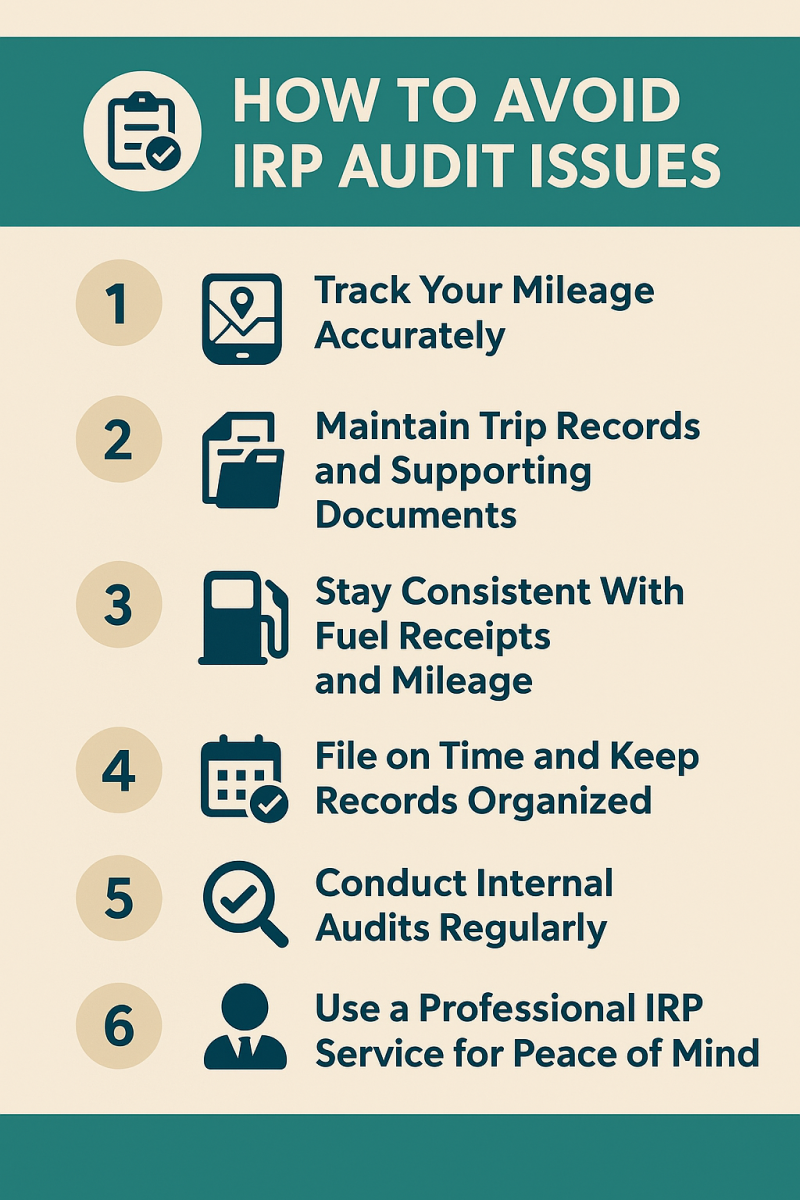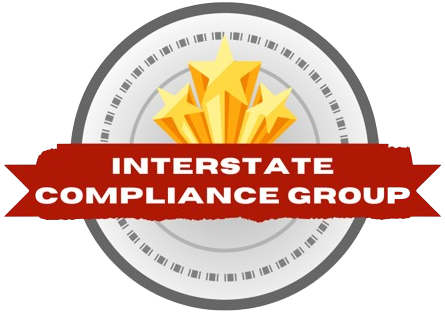As a commercial carrier operating across state lines, registering under the International Registration Plan (IRP) is essential. But registration is only the first step—staying compliant with IRP requirements is just as important. One misstep in mileage tracking or documentation can lead to an IRP audit, which could result in fines, back payments, or even suspended registrations.
The good news? Most IRP audit issues are completely avoidable with good habits and proactive planning. In this guide, we’ll cover practical tips to help you stay audit-ready year-round—and how to avoid the most common pitfalls that trip up carriers.
For expert help, don’t hesitate to use MyICGroup’s IRP service to stay compliant and organized.
1. Track Your Mileage Accurately
Mileage reporting is at the heart of IRP compliance. IRP audits focus heavily on whether your reported miles match your actual routes.
How to Stay Accurate:
- Use a reliable GPS system or ELD that records mileage per jurisdiction.
- Document all state line crossings and trip start/end locations.
- Record all miles, including deadhead and personal use miles.
Inaccurate or estimated mileage is a red flag in an audit—so precise tracking is non-negotiable.
2. Maintain Trip Records and Supporting Documents
Auditors need to verify your reported mileage, so it’s crucial to have trip-level documentation that backs it up.
Your Trip Reports Should Include:
- Date and time of trip
- Driver name and unit number
- Origin and destination
- Routes taken and odometer readings
- Jurisdictions entered and exited
Also Keep On File:
- Fuel receipts
- Maintenance logs
- Dispatch records
These supporting documents paint a full picture and help prove your mileage claims are valid.
3. Stay Consistent With Fuel Receipts and Mileage
During an audit, one of the first things inspectors look for is discrepancies between fuel receipts and mileage logs.
How to Avoid Red Flags:
- Match fuel receipts to the correct truck and trip.
- Record the exact location and amount of fuel purchased.
- Avoid fuel stops that don’t make sense geographically based on your trip logs.
Even a few inconsistent entries can cause auditors to dig deeper, so attention to detail matters.
4. File on Time and Keep Records Organized
Late filings or messy paperwork are not just frustrating—they can make you a target for audits.
Best Practices:
- File your IRP renewal early, not just on time.
- Use a digital recordkeeping system to keep everything accessible.
- Archive past records for at least 5 years, even if you’re no longer using that vehicle.
When your documents are in order, audits become much easier to manage.
5. Conduct Internal Audits Regularly
Don’t wait for the IRP office to uncover mistakes. Proactively audit your own records to spot errors before they become a problem.
How to Perform an Internal Audit:
- Select a few random trips and cross-check mileage, fuel logs, and route data.
- Verify that your total reported mileage per jurisdiction aligns with your records.
- Look for missing documentation or unclear trip logs.
Catching small issues early can prevent big problems down the road.
6. Use a Professional IRP Service for Peace of Mind
Let’s face it—managing IRP compliance takes time and attention to detail. If you’re juggling multiple responsibilities, it’s easy for paperwork to slip through the cracks.
Benefits of Using MyICGroup’s IRP Service:
- Expert oversight of all IRP forms and filings
- Accurate mileage tracking tools and software
- Audit preparedness and recordkeeping support
- Personalized assistance if you’re selected for an audit
Getting help from professionals ensures your business stays audit-ready all year long.

Stay Ahead of the Audit Curve
Avoiding IRP audit issues doesn’t require magic—just smart planning, accurate records, and a commitment to staying organized. By tracking mileage properly, maintaining complete trip records, and performing internal reviews, you can minimize the risk of audit penalties and focus on running a successful operation.
For stress-free IRP compliance, MyICGroup’s IRP service has your back every step of the way. Stay ready, stay compliant, and keep your trucks moving without interruptions.





